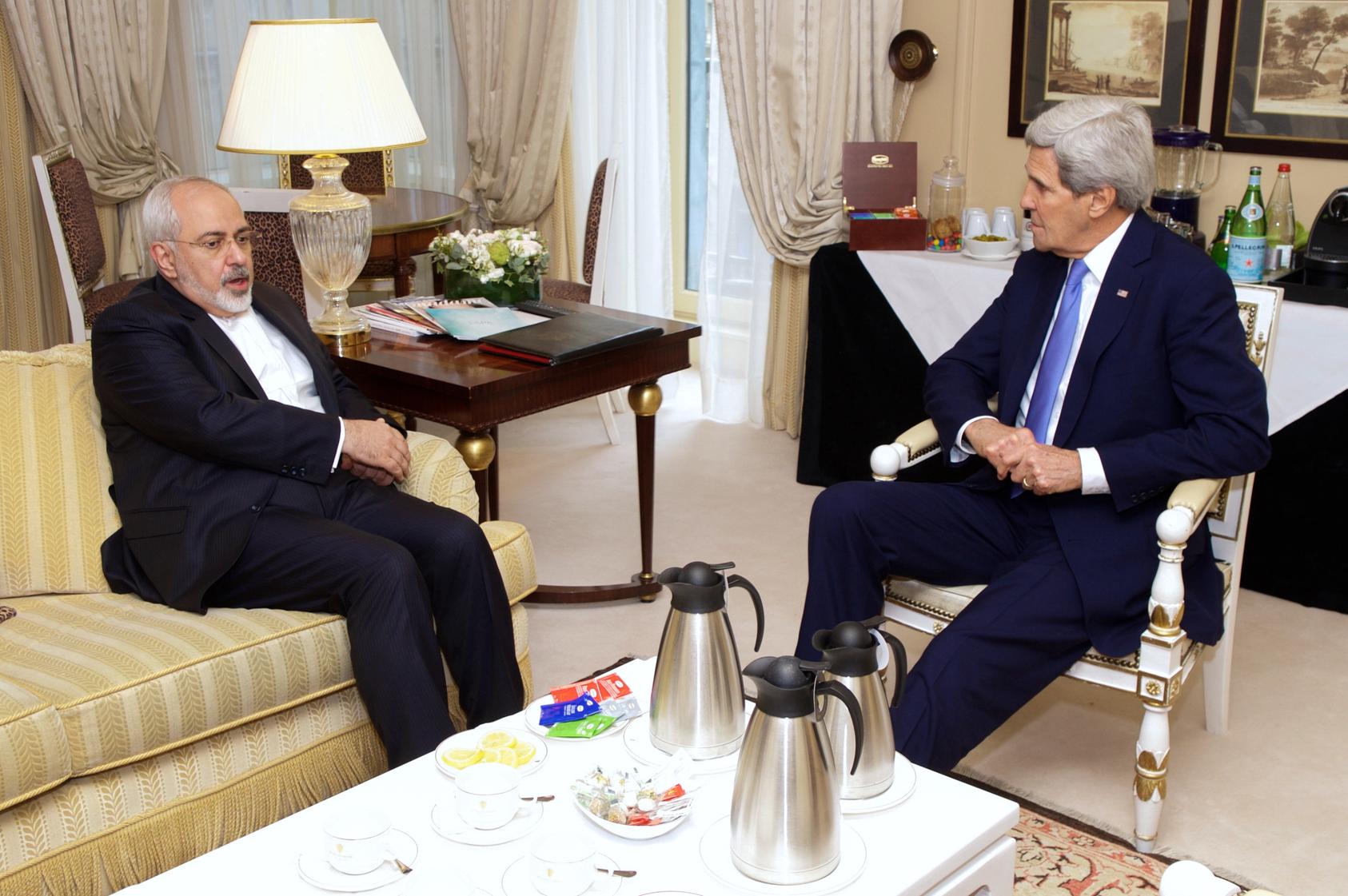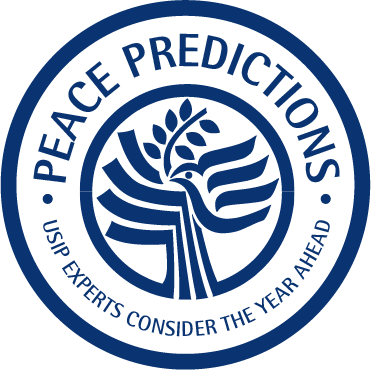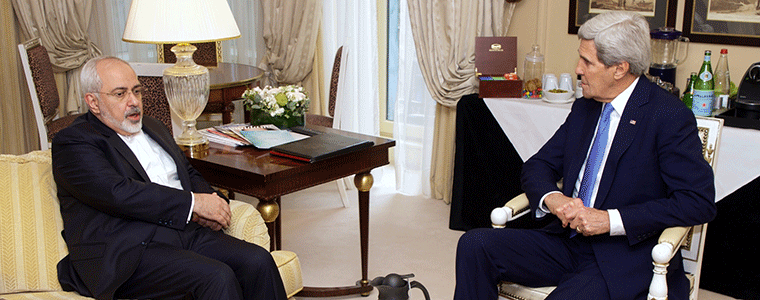Peace Predictions: USIP Experts Consider the Year Ahead
Talks between Iran and six major powers—the U.S., the U.K., China, France, Germany and Russia—seek a framework agreement by March 24 with technical details by June. But leaders on all sides face intense—and sometimes harrowing—domestic pressure from opponents who fear a final agreement will give away too much. Robin Wright, an author and distinguished fellow at the U.S. Institute of Peace, explores the dynamics of the diplomacy.


What are the chances that the two sides will be able to meet the deadlines set out for this year?
For the first time in 36 years, Iran and the United States are on the same page at the same time with the same goal. Both the United States and the Islamic Republic want a deal that will ensure Iran is not able to make a bomb and that Iran, in turn, gets relief from punitive economic sanctions. The world’s five other major powers are also on board, so there’s international consensus and cooperation for the first time too. Despite significant differences among the major powers over other issues—notably the United States and Russia at odds over Ukraine—the big question is whether all sides can do enough to get to an agreement.
What do the two sides want?
Iran wants a deal that’s very short in its lifespan. The major powers want one that lasts for a decade and probably two; they want long-term arrangements to verify that Tehran does not develop new capabilities. Iran wants quick and broad sanctions relief; the other powers want to do it gradually – basically, an incremental deal in which, for every one thing Iran does, the outside world does another simultaneously. It will not be like a light switch that flicks on and off automatically. It’s more like a dimmer – a very, very slow-moving dimmer.
What are the biggest potential stumbling blocks?
There is a huge array of stumbling blocks that involve very technical arrangements. Iran claims it wants nuclear energy for peaceful use, because its oil resources will actually run out within 15 years at the current rate of consumption and the current population growth. And it wants diverse energy sources so that it can use its oil for export, in an economy that doesn’t export a lot of other things.
For Iran, the issue is as much sovereignty as it is the right to enrichment. Iran fears that, if the outside world controls its fuel cycle, they might someday hold fuel meant for energy consumption hostage in exchange for concessions on unrelated disputes, such as regional security issues. Iran sees its enrichment as an inherent right, as a signatory of the Non-Proliferation Treaty.
The West wants to make sure that Iran’s enrichment capability is limited, inspected thoroughly and regularly. The six major powers don’t believe that Iran actually needs an enrichment program at all, because its single reactor is fueled by the Russians, who built the facility at Bushehr. Iran argues that it wants enrichment for eventual use in other reactors for energy that it may eventually build. It doesn’t have that capability at the moment, however.
But there also are myriad technical issues – how many centrifuges, what level of centrifuges, what happens to certain facilities that are related to the nuclear program in Arak, in Qom, in Isfahan, on certain military bases where Iran has been suspected of carrying out research and development. The list of issues to be resolved goes on for many pages.
Are there other reasons why it is important to strike a deal?
Getting a nuclear deal with Iran would be one of the most important non-proliferation feats in decades.
Iran has been the nemesis of the last six American presidents. Jimmy Carter didn’t get a second term because of the Iran hostage crisis. The biggest embarrassment for Ronald Reagan was the Iran arms-for-hostages swap. President Clinton was unable to translate outreach by Iran’s then-reform president into détente. George W. Bush gave Iran more power in the region with the invasion of Iraq, when Iran came out stronger than before the U.S. intervention.
Getting a nuclear deal with Iran would be one of the most important non-proliferation feats in decades. It would also help prevent an arms race for the world’s deadliest weapon in the world’s most volatile region. It would end almost two generations—almost four decades—of tension between the United States and Iran. It could open the way for defusing flashpoints in the Middle East and at least the beginning of a dialogue on shared interests, such as the future of Iraq, and potentially the future of Syria, which today is the messiest conflict in the Middle East.
It could also help defuse the sectarian tensions between Sunnis and Shiites that has played out particularly between Iran and Saudi Arabia. It would ease oil markets, by getting Iran’s oil back online legitimately.
